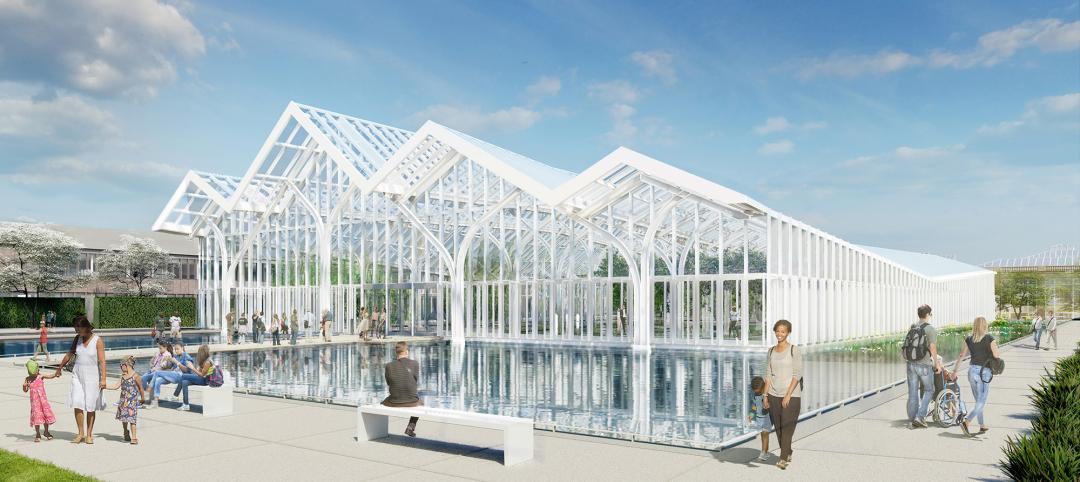BD+C: What are the chief initiatives for BOMA in the coming year?
Boyd R. Zoccola: Our theme for the year is achieving high performance through innovation. One area is recruiting young professionals into real estate management. We’ve got a lot of young people in university real estate programs that want to be owners and entrepreneurs but may not be aware of careers in the day-to-day operations of property management—asset management, interacting with tenants, setting budgets, etc.
Our industry has an aging management group, and we need to reach out to the young people who will be carrying the water in our business through 2025. Our Thought Leaders Symposium at Georgetown University November 10 (www.boma.org/about/bomafoundation) is designed to make them aware of property management as a career.
Another area is benchmarking tools. We’re coming up on the end of the BOMA 7-Point Challenge, to make buildings 30% more efficient than the mid-level (50) building in Energy Star. It’s been a great success, with more than 3,000 buildings and 800 million square feet sharing their data with BOMA. Members like CBRE and USAA are already well beyond the 7-Point Challenge. BOMAStars is a tool to share the data, which will allow us to talk objectively to legislators or mayors about the positive strides we’re making.
BD+C: What national issues will BOMA be pursuing in the coming year?
BRZ: From a tax standpoint, the 15-year timeline for depreciating leasehold improvements expires at the end of the year; left unchanged, it reverts to 39 years. We think 15 years is a more realistic picture of the marketplace, and we want it to be made permanent.
We’re also concerned about an EPA initiative to require the removal of lead-based paint in office buildings. We don’t think there’s been enough study to justify that. The EPA is also considering treating stormwater runoff from office sites. We don’t think buildings are point sources under the Clean Water Act.
BD+C: What are the greatest concerns of BOMA members at this time?
BRZ: The economy is number one, of course. But, based on our research, we now know that work/life balance is number two. We didn’t even hear about that four years ago. All our members are being asked to do more with less, but there’s only so much time in the day, so how much time can they give to BOMA? That’s a concern for us as an organization.
Tenant retention is a big issue for members. It’s much easier to keep a tenant than to replace one. Having vacancies is the easiest way to decrease asset value. Our members are making improvements that tenants can see on a daily basis—common areas, restrooms, corridor finishes—to make sure their buildings are crisp and clean and don’t feel old. They’re making improvements with a two-year payback, but it’s the five- and 10-year paybacks where the overall cost just doesn’t make a business case, at least not without incentive dollars.
BD+C: How is the BOMA 360 program doing?
BRZ: BOMA 360 is about holistic best practices, how well you run your building with the systems that you have—standard operating procedures, emergency preparedness, Energy Star benchmarking, data sharing, etc. It’s just two years old, and we already have 300 certified buildings. Surveys are showing that 360 buildings are getting higher marks in tenant satisfaction than other buildings. When you look at the other designation programs out in the marketplace, we’ve exceeded all but one, LEED.
BD+C: When is the U.S. office market going to turn around?
BRZ: It’s kind of the haves and the have-nots. D.C., New York, San Francisco, Boston, they’re all doing very, very well. There are some other pockets, but for most BOMA members, our recovery is directly tied to jobs, and until we can reduce unemployment, we’re not going to see a turnaround in the office market.
Medical continues to be a strong sector across the country—MOBs, surgical centers, imaging, oncology, outpatient services. Mixed-use properties are becoming more prevalent, and we think they’re going to flourish.
BD+C: What’s your biggest business-related worry?
BRZ: From our company’s perspective, it’s how best to manage the inflation risk that we perceive as coming in the marketplace. We think it’s going to happen.
The other has to do with staff retention. Over the last three years, we asked people to go without raises and employer contributions to 401(k) plans. I believe that many BOMA members, large and small, are trying to manage their staff retention, to make up for the cuts of the last three years.
BD+C: How can BD+C readers—architects, engineers, and contractors—work more effectively with BOMA members as clients?
BRZ: From a personal perspective, I’m buying those services based on quality of service and ability to deliver on time; price is in third place. It’s all about timing, and you might be one of the three or four firms that I throw into an RFP process. I don’t shotgun out an RFP to 20 firms.
Now’s the time to market within your niche. Don’t try to be everything to everyone. We hear from a lot of firms who want to do medical buildings but have no experience, and they wonder why we don’t pick them.
Make sure that you’re marketing to multiple people within a company. If that one person at the top goes, you’re vulnerable. Make sure that if you have a transition in a client organization, you can survive a CEO change.
Finally, it’s the last 2% of every job that’s the most difficult, and that’s the time to finish strong. Don’t give your client any reason to make a change. BD+C
Related Stories
Market Data | Apr 1, 2024
Nonresidential construction spending dips 1.0% in February, reaches $1.179 trillion
National nonresidential construction spending declined 1.0% in February, according to an Associated Builders and Contractors analysis of data published today by the U.S. Census Bureau. On a seasonally adjusted annualized basis, nonresidential spending totaled $1.179 trillion.
Affordable Housing | Apr 1, 2024
Biden Administration considers ways to influence local housing regulations
The Biden Administration is considering how to spur more affordable housing construction with strategies to influence reform of local housing regulations.
Affordable Housing | Apr 1, 2024
Chicago voters nix ‘mansion tax’ to fund efforts to reduce homelessness
Chicago voters in March rejected a proposed “mansion tax” that would have funded efforts to reduce homelessness in the city.
Standards | Apr 1, 2024
New technical bulletin covers window opening control devices
A new technical bulletin clarifies the definition of a window opening control device (WOCD) to promote greater understanding of the role of WOCDs and provide an understanding of a WOCD’s function.
Adaptive Reuse | Mar 30, 2024
Hotel vs. office: Different challenges in commercial to residential conversions
In the midst of a national housing shortage, developers are examining the viability of commercial to residential conversions as a solution to both problems.
Sustainability | Mar 29, 2024
Demystifying carbon offsets vs direct reductions
Chris Forney, Principal, Brightworks Sustainability, and Rob Atkinson, Senior Project Manager, IA Interior Architects, share the misconceptions about carbon offsets and identify opportunities for realizing a carbon-neutral building portfolio.
Reconstruction & Renovation | Mar 28, 2024
Longwood Gardens reimagines its horticulture experience with 17-acre conservatory
Longwood Gardens announced this week that Longwood Reimagined: A New Garden Experience, the most ambitious revitalization in a century of America’s greatest center for horticultural display, will open to the public on November 22, 2024.
Office Buildings | Mar 27, 2024
A new Singapore office campus inaugurates the Jurong Innovation District, a business park located in a tropical rainforest
Surbana Jurong, an urban, infrastructure and managed services consulting firm, recently opened its new headquarters in Singapore. Surbana Jurong Campus inaugurates the Jurong Innovation District, a business park set in a tropical rainforest.
Cultural Facilities | Mar 27, 2024
Kansas City’s new Sobela Ocean Aquarium home to nearly 8,000 animals in 34 habitats
Kansas City’s new Sobela Ocean Aquarium is a world-class facility home to nearly 8,000 animals in 34 habitats ranging from small tanks to a giant 400,000-gallon shark tank.
Market Data | Mar 26, 2024
Architecture firm billings see modest easing in February
Architecture firm billings continued to decline in February, with an AIA/Deltek Architecture Billings Index (ABI) score of 49.5 for the month. However, February’s score marks the most modest easing in billings since July 2023 and suggests that the recent slowdown may be receding.

















